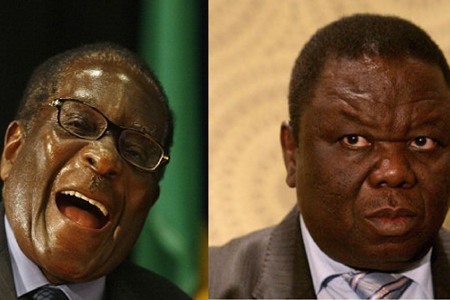
Over the past three years Zimbabwe has been experiencing a transition. Although transitions are difficult, they are not impossible. Any government that wants to change the course of history needs to make difficult political choices and work hard at implementing them.
Report by leon hartwell
Several analysts have written about the Government of National Unity (GNU)’s shortcomings and disappointments, especially with regards to outstanding issues in the Global Political Agreement (GPA).
Zimbabwean politicians also sometimes talk about the GNU as if it is a “marriage of convenience”. However, we should not fail to recognise that Zimbabweans have shaped important values and institutions that can be built upon.
The economy has stabilised partly as a result of dollarisation, but also because of the formation of the GNU. It signalled to businesses and investors that there is the potential for a more stable economic environment. The GNU has exposed the main political parties to several intense processes of negotiation. Importantly, the GNU gave birth to several new mechanisms and institutions, including the Joint Monitoring and Implementation Committee (Jomic) and the new Constitution. Working on developing these institutions helped former enemies to become one another’s opposition; one hopes that they will continue to respect and treat one another that way as we move towards elections.
The constitution-making process, especially over the past two years, was characterised by several moments that are worth mentioning. The Second All Stakeholders’ Conference (ASC) in 2012 was a merry event.
At the opening, President Robert Mugabe and Prime Minister Tsvangirai danced to “Tuku”. Minister Eric Matinenga stated that he felt “a sense of political tolerance” and argued that the Constitution Parliamentary Committee (Copac) draft was “a product of a collective effort”.
During their addresses at the ASC, Mugabe and Tsvangirai both called for “peace”. Near the end of his speech, Mugabe stated, “violence is primitive… Let us shame our detractors who think Zimbabweans cannot resolve their differences without resorting to violence.”
- Chamisa under fire over US$120K donation
- Mavhunga puts DeMbare into Chibuku quarterfinals
- Pension funds bet on Cabora Bassa oilfields
- Councils defy govt fire tender directive
Keep Reading
When the Constitution was introduced in Parliament, Copac co-chairs Douglas Mwonzora and Paul Mangwana cracked jokes across the floor with one another. Copac forced political parties, as well as Zimbabweans, into an intense conversation about the country’s past, present and future. One hopes this has not been in vain and that many of these negotiation processes have fostered a culture of compromise and dialogue.
Following the referendum, Zimbabweans now have new lenses to judge one another’s conduct. The new Constitution redefined the relationship between the state and the individual. Minister Welshman Ncube remarked, “We finally have a Constitution that we can truly call our own. . . As we move forward to rebuild our Zimbabwe, let the challenge be of ensuring that our political and governance practices measure up to the letter and spirit of this supreme law.”
In the Preamble of the new Constitution, it is written, “We the people of Zimbabwe are united in our diversity by our common desire for freedom, justice and equality, and our heroic resistance to colonialism, racism and all forms of domination and oppression.”
These values were created, not by one man or one party, but by many Zimbabweans for the benefit of all Zimbabweans.
Chapter four of the new Constitution consists of the Declaration of Rights. Many of these rights are well crafted but they will not bloom by themselves. Constitutionalism goes beyond having a new legal framework; it is about its implementation.
As Zimbabwe moves forward politically, so have relations with the Western world improved since 2008. In fact, many of the multi-party processes, including the constitution-making process and Jomic, have been supported by the Western world. In recognition of the GNU’s commitments and implementation of the GPA, the European Union removed and suspended a host of measures against a number of top Zimbabwean officials and the regional bloc said it would work with any government formed as a result of a free and fair election. Today Zimbabwe has an opportune moment to capitalise on the momentum of the work that it has done since 2009. Zimbabweans simply want liberty, peace, and economic prosperity. The power is within this government and the next to deliver this to the people by focusing on implementation of the new Constitution, as well as by hosting free, fair and credible elections.
l Hartwell is a senior policy adviser at the Netherlands Embassy. He writes in his personal capacity.










